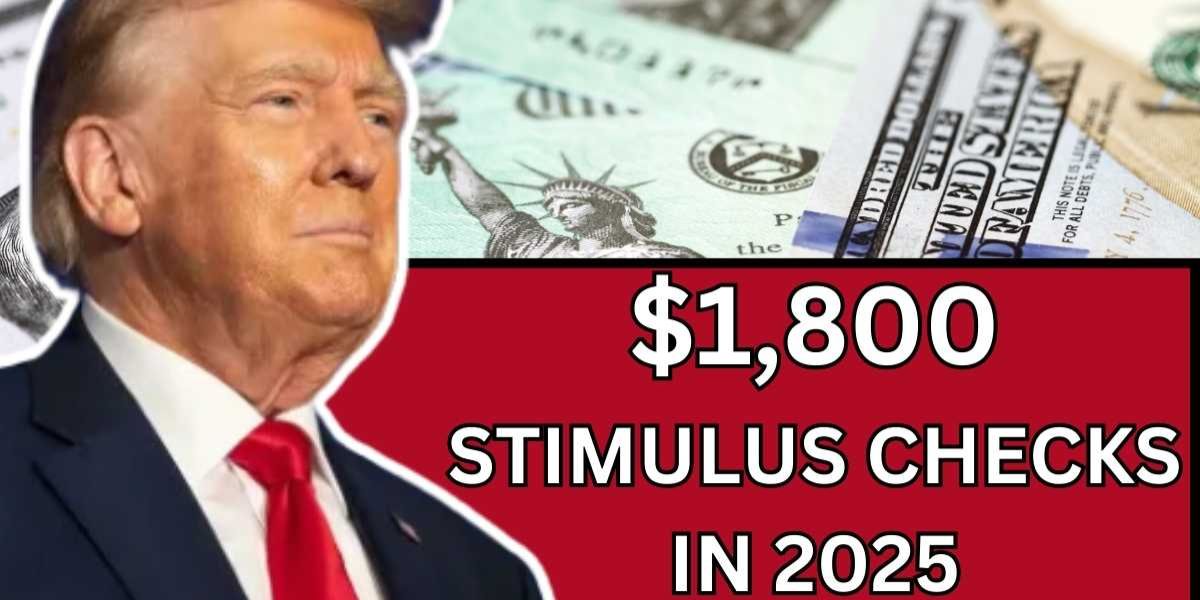As millions of Americans await the announcement of the $1,800 stimulus payments scheduled for 2025, there are numerous questions concerning eligibility, payment amounts, and schedules. This article delves into the fundamental aspects of these planned payments and how to prepare for them, giving valuable information to individuals, families, and small business owners.
Why Stimulus Checks are Proposed for 2025
The government frequently issues stimulus cheques, also known as Economic Impact Payments (EIPs), during periods of financial turmoil. Although the economy has improved since the outbreak, many Americans continue to confront hardships, including:
- Rising Living Costs: Inflation continues to affect daily expenses such as groceries, housing, and healthcare.
Stagnant Wage Growth: For many workers, wage increases have failed to keep up with rising living costs.
Lingering Economic Inequality: Low-income and minority populations are still recuperating from the pandemic’s consequences.
To address these persisting challenges and boost economic growth, the government proposes $1,800 payments in 2025 to help alleviate financial constraints on people across the country.
Who is eligible for the $1,800 stimulus payments in 2025?
The eligibility criteria for the 2025 stimulus cheques are likely to follow similar standards as past payments, with changes based on income, tax filing status, and dependent status.
Income Limits
Eligibility is generally decided by your adjusted gross income (AGI) on your most recent tax return.
- Single filers: Full payment for AGI less than $75,000; payments phase down at $99,000.
- Married couples filing jointly: full payment for AGI less than $150,000; payments phase down at $198,000.
- Head of Household: Full payment for AGIs under $112,500; benefits phase down at $136,500.
Dependents - Families with dependents will get an additional $500 per child under the age of 17 to assist cover the costs of raising a family.
Non-Filers
Those who do not regularly pay taxes, such as seniors on Social Security or veterans with VA pensions, will most likely qualify, but they must ensure that their personal and benefit information is current with the IRS.
Special cases
Mixed-Status Families: At least one household member must have a valid Social Security number.
Individuals who are unemployed or have recently been employed Eligibility is dependent on earlier tax files, so even if you are not now employed, your 2023 or 2024 tax returns may decide your eligibility.
Distribution of $1,800 Stimulus Payments
The Internal Revenue Service is in charge of distributing stimulus monies. Here’s what to expect:
- Direct Deposit: If you have your bank account information on file with the IRS, payments will be delivered directly to it.
- Paper checks: Those lacking direct deposit information will be mailed a check.
- Prepaid Debit Cards: In some circumstances, stimulus payments may be delivered on prepaid cards to facilitate access to cash.
To avoid delays, ensure that your banking and mailing information on file with the IRS is correct.
How To Check the Status of Your $1,800 Stimulus Payment
The IRS normally provides a program named “Get My Payment” that allows beneficiaries to:
- Verify their qualifications.
- Monitor the status of their payments.
- Update their financial or mailing information.
Visit IRS.gov for the most up-to-date information and to utilize the tool once it is available.
How to Prepare for the $1,800 Stimulus Payment
There are numerous measures you can take right now to ensure you receive your reward quickly:
1. File your taxes.
Even if your income is too low to warrant filing, completing a tax return guarantees that the IRS has the correct information to release the payment.
2. Update your information.
If you’ve recently relocated or changed banks, use the IRS portal to update your personal and financial information.
3. Be aware of scams.
As stimulus payments are a typical target for fraudsters, keep in mind that the IRS will never ask for money in exchange for processing your payment. Always verify communications via IRS.gov.
4. Stay Informed on Legislation
Stimulus checks require Congressional approval, so keep track of any legislative changes that may affect the schedule or eligibility for payments.
What to Do If You Don’t Receive Your Payment?
If you believe you are qualified but have not received a payment, take these steps:
- Check the IRS portal for payment status updates.
- If you did not get a previous stimulus payment, claim the Recovery Rebate Credit on your 2023 or 2024 tax returns.
- For assistance, please contact the IRS helpdesk.
Additional benefits for families and small businesses.
Other types of financial support could be included in the planned stimulus package for 2025:
- Families can benefit from expanded Child Tax Credits to cover childcare expenses.
- Temporary increases in Earned Income Tax Credits (EITC) to help working families.
- Grants are available for small businesses in pandemic-impacted sectors.
- Loan forgiveness schemes for businesses that have received federal relief assistance.
- Tax breaks for employers who hire and train new staff.
Stay up to date on announcements from the Small Business Administration (SBA) and local government agencies on available help.

